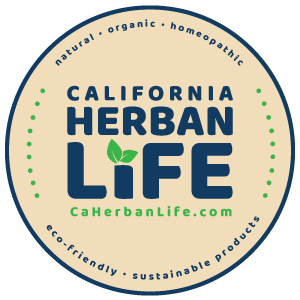Much of our water supply comes from rivers, lakes and reserves. Yet half of the world’s most important rivers are severely depleted and polluted. The flora and fauna that naturally filter our groundwater are rapidly disappearing, and climate change and population growth compound the pressure on our water resources. It is an increasingly discussed fact that within the next decade, water shortage will, for most of us, be a fact of life. For many, it already is.
We’ve already established in recent blogs the obvious point of how vital water is to our survival. We’ve shared the impact of dehydration, of how we use water to produce energy, of the quality of water we consume, and more. The water we receive and use in our cities, our towns and our homes, is often taken for granted. What’s more, the effect that our simple daily routines has on the water resources that supply us is regularly overlooked.
Everything from how much water you use in your home, to the cleaning products and day-to-day items you purchase, unknowingly play a role in polluting and depleting our waterways. Here are 12 ways you, your friends and your family can all reduce impact on our shared water resources!
- Switch to Less Polluting Household Products. This includes avoiding detergents with phosphates, cleaning products with triclosan, and antibacterial soaps, all of which harm aquatic life.
- Be Careful in Your Kitchen. Rinse your fruits and vegetables in a pan instead of letting the water run. When hand-washing dishes, fill one side to wash and rinse quickly in the other. This saves gallons every time. And to create less dishes to wash, stick to one glass a day for your beverages whenever possible!
- Be Careful in Your Bathroom. Reducing your shower length by even one minute can save up to 150 gallons of water per month, with showers less than 5 minutes saving 5000 gallons a month! Keep baths to a minimum as each bath uses up to 70 gallons of water. And if (as is common in Lebanon), you have to run the water to warm it up, fill up buckets while it is running. You can use this to soak laundry, water plants, fill cooking pots or wash dishes!
- Be a Responsible Car Owner. Take your used motor oil to a recycling center and do proper maintenance to avoid leaks of toxic products (like oil, coolant and antifreeze) on the roadways which end up washing into our rivers and other water resources. If you wash your car at home, try to do it over or near a plant area so the water run-off is put to good use (and use eco-friendly products if you use any!). Also, obviously, don’t use water to clean your driveways (we know this is common in Lebanon!), and discourage your local businesses from this practice too. A simple sweep should suffice.
- Dispose of all Chemicals Properly. Extending the points made about car maintenance and cleaning, prevent paints, turps, and other chemicals from entering your sink, your drain, or your toilet. While you’re at it, never flush medications!
- Keep Your Household Water Efficient. Install water-efficient toilets, washing machines and showerheads. Turn down the water pressure when you don’t need it on full blast. Fix leaks as fast as possible (every second of water leakage can add up to 5 gallons a day), and only run full loads when doing laundry or running a dishwasher.
- Grow Water-Efficient Gardens. This starts by not planting lawns! They are very damaging to the environment and a waste of land. They use excessive pesticides and chemical fertilizers that pollute surface and groundwater. To reduce pesticide and fertilizer use even further, plant native species, which also helps you conserve water. You can collect rain in barrels to water plants as well, and do the watering in the early morning or evening to avoid unnecessary evaporation. Finally, adding mulch to your garden beds helps retain moisture so you don’t have to water as often!
- Pick up Litter and Call Out Litterers. Litter in public spaces ends up flowing with the rain into our waterways. This includes picking up after your dog, because pest waste full of bacteria runs into those waterways too!
- Hire a ‘green plumber’. If you can afford it, get a plumber who can help your home conserve more water. It will save you money in the long run too!
- Eat Wisely. Agriculture is one of the biggest water suckers. Massive amounts of water are used to grow your food, so don’t waste it. And reducing or eliminating meat from your diet, especially red meat, makes a huge difference. A single pound of beef takes an average of 1,800 gallons to produce. Go organic and hormone and antibiotic free whenever possible, because that means less pesticides and harmful contaminants ending up in our waterways too.




